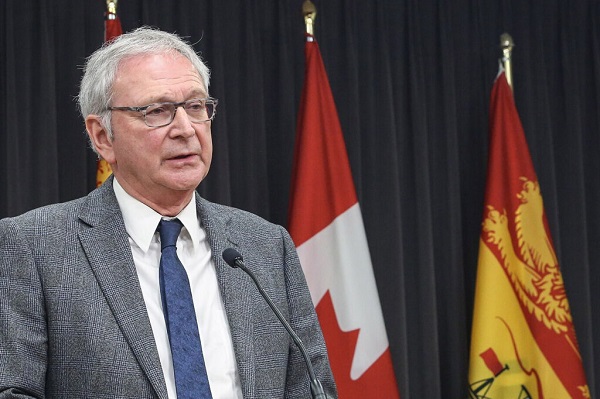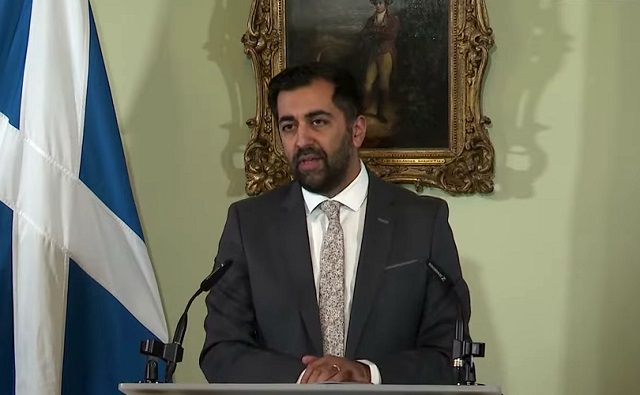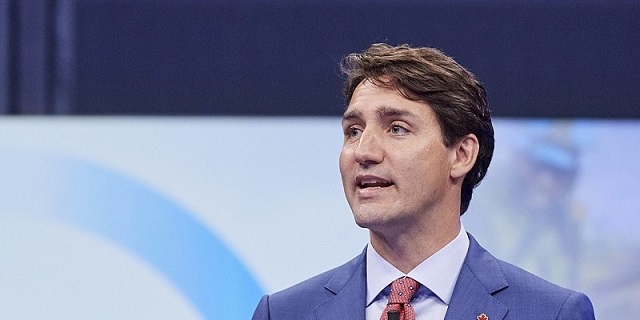COVID-19
Treat COVID-19 like the flu: new CDC guidelines
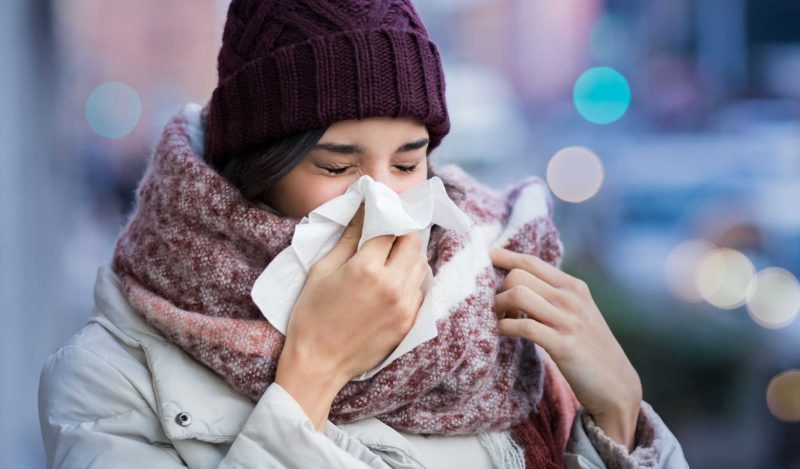
Press release from the CDC
CDC updates and simplifies respiratory virus recommendations
Recommendations are easier to follow and help protect those most at risk
CDC released today (Friday, March 1, 2024) updated recommendations for how people can protect themselves and their communities from respiratory viruses, including COVID-19. The new guidance brings a unified approach to addressing risks from a range of common respiratory viral illnesses, such as COVID-19, flu, and RSV, which can cause significant health impacts and strain on hospitals and health care workers. CDC is making updates to the recommendations now because the U.S. is seeing far fewer hospitalizations and deaths associated with COVID-19 and because we have more tools than ever to combat flu, COVID, and RSV.
“Today’s announcement reflects the progress we have made in protecting against severe illness from COVID-19,” said CDC Director Dr. Mandy Cohen. “However, we still must use the commonsense solutions we know work to protect ourselves and others from serious illness from respiratory viruses—this includes vaccination, treatment, and staying home when we get sick.”
As part of the guidance, CDC provides active recommendations on core prevention steps and strategies:
- Staying up to date with vaccination to protect people against serious illness, hospitalization, and death. This includes flu, COVID-19, and RSV if eligible.
- Practicing good hygiene by covering coughs and sneezes, washing or sanitizing hands often, and cleaning frequently touched surfaces.
- Taking steps for cleaner air, such as bringing in more fresh outside air, purifying indoor air, or gathering outdoors.
When people get sick with a respiratory virus, the updated guidance recommends that they stay home and away from others. For people with COVID-19 and influenza, treatment is available and can lessen symptoms and lower the risk of severe illness. The recommendations suggest returning to normal activities when, for at least 24 hours, symptoms are improving overall, and if a fever was present, it has been gone without use of a fever-reducing medication.
Once people resume normal activities, they are encouraged to take additional prevention strategies for the next 5 days to curb disease spread, such as taking more steps for cleaner air, enhancing hygiene practices, wearing a well-fitting mask, keeping a distance from others, and/or getting tested for respiratory viruses. Enhanced precautions are especially important to protect those most at risk for severe illness, including those over 65 and people with weakened immune systems. CDC’s updated guidance reflects how the circumstances around COVID-19 in particular have changed. While it remains a threat, today it is far less likely to cause severe illness because of widespread immunity and improved tools to prevent and treat the disease. Importantly, states and countries that have already adjusted recommended isolation times have not seen increased hospitalizations or deaths related to COVID-19.
While every respiratory virus does not act the same, adopting a unified approach to limiting disease spread makes recommendations easier to follow and thus more likely to be adopted and does not rely on individuals to test for illness, a practice that data indicates is uneven.
“The bottom line is that when people follow these actionable recommendations to avoid getting sick, and to protect themselves and others if they do get sick, it will help limit the spread of respiratory viruses, and that will mean fewer people who experience severe illness,” National Center for Immunization and Respiratory Diseases Director Dr. Demetre Daskalakis said. “That includes taking enhanced precautions that can help protect people who are at higher risk for getting seriously ill.”
The updated guidance also includes specific sections with additional considerations for people who are at higher risk of severe illness from respiratory viruses, including people who are immunocompromised, people with disabilities, people who are or were recently pregnant, young children, and older adults. Respiratory viruses remain a public health threat. CDC will continue to focus efforts on ensuring the public has the information and tools to lower their risk or respiratory illness by protecting themselves, families, and communities.
This updated guidance is intended for community settings. There are no changes to respiratory virus guidance for healthcare settings.
COVID-19
NIH Quietly Altered Definition For Gain-Of-Function Research On Its Website, Former Fauci Aide Confirms

 From the Daily Caller News Foundation
From the Daily Caller News Foundation
By JASON COHEN
National Institutes of Health (NIH) Principal Deputy Director Lawrence Tabak confirmed on Thursday that his agency’s communications department altered NIH’s definition for gain-of-function research, with the change being “vetted” by “experts.”
The NIH until Oct. 20, 2021 defined this research as “modif[ying] a biological agent so that it confers new or enhanced activity to that agent,” while “some scientists use the term broadly to refer to any such modification,” according to the House Oversight Committee. Republican Rep. Nicole Malliotakis of New York questioned Tabak, a former aide to Dr. Anthony Fauci, about the agency changing its definition of the research on its website, asking him who authorized the alteration.
WATCH:
The current website does not define gain-of-function research, but asserts this research is usually uninvolved with enhanced potential pandemic pathogens.
“The change was made by our communications department because of the confusion that people have about the generic term of gain-of-function and the specific term gain-of-function,” Tabak testified.
Malliotakis responded by suggesting the communications department would not be qualified to make a change like this and must have had other input.
“The content was vetted,” Tabak testified. “By individuals who are subject-matter experts.”
Fauci firmly denied that the National Institute of Allergy and Infectious Diseases (NIAID) funded gain-of-function research on bat-based coronaviruses at the Wuhan Institute of Virology (WIV) before the COVID-19 pandemic during a Senate hearing in May 2021.
“The NIH has not ever and does not now fund gain of function research in the Wuhan Institute of Virology,” Fauci said.
Tabak testified on Thursday that the NIH did fund this research at the Wuhan Institute of Virology, but it “depends on [the] definition.”
The NIAID, which Fauci previously led, funded the nonprofit group EcoHealth Alliance to study bat-based coronaviruses in China that consisted of the transfer of $600,000 to the WIV, the Daily Caller News Foundation previously reported.
COVID-19
COVID Lab Leak: Over four later, EcoHealth Alliance funding is finally suspended

From Heartland Daily News
Thursday, May 16, 2024
Federal Funding Stripped From Nonprofit at Center of COVID Lab Leak Controversy
Today, the Biden administration suspended federal funding to the scientific nonprofit whose research is at the center of credible theories that the COVID-19 pandemic was started via a lab leak at the Wuhan Institute of Virology.
This morning, the U.S. Department of Health and Human Services (HHS) announced that it was immediately suspending three grants provided to the New York-based nonprofit EcoHealth Alliance (EHA) as it starts the process of debarring the organization from receiving any federal funds.
“The immediate suspension of [EcoHealth Alliance] is necessary to protect the public interest and due to a cause of so serious or compelling a nature that it affects EHA’s present responsibility,” wrote HHS Deputy Secretary for Acquisitions Henrietta Brisbon in a memorandum signed this morning.
For years now, EcoHealth has generated immense controversy for its use of federal grant money to support gain-of-function research on bat coronaviruses at the Wuhan lab.
In a memo justifying its funding suspension, HHS said that EcoHealth had failed to properly monitor the work it was supporting at Wuhan. It also failed to properly report on the results of experiments showing that the hybrid viruses it was creating there had an improved ability to infect human cells.
Congressional Republicans leading an investigation into EcoHealth’s research in Wuhan, and the role it may have played in starting the pandemic via a lab leak, cheered HHS’s decision.
“EcoHealth facilitated gain-of-function research in Wuhan, China without proper oversight, willingly violated multiple requirements of its multimillion-dollar National Institutes of Health [NIH] grant, and apparently made false statements to the NIH,” said Rep. Brad Wenstrup (R–Ohio), chair of the House’s Select Subcommittee on the Coronavirus Pandemic in a statement. “These actions are wholly abhorrent, indefensible, and must be addressed with swift action.”
Beginning in 2014, EcoHealth received a grant from NIH’s National Institute of Allergies and Infectious Diseases (NIAID) to study bat coronavirus in China. Its initial scope of work involved collecting and cataloging viruses in the wild and studying them in the lab to spot which ones might be primed to “spillover” into humans and cause a pandemic.
Soon enough, EcoHealth used some of the viruses they’d collected to create “chimeric” or hybrid viruses that might be better able to infect human lung cells in genetically engineered (humanized) mice.
This so-called “gain-of-function” research has long been controversial for its potential to create deadly pandemic pathogens. In 2014, the Obama administration paused federal funding of gain-of-function research that might turn SARS, MERS, or flu viruses into more transmissible respiratory diseases in mammals.
In 2016, NIH flagged EcoHealth’s work as likely violating the 2014 pause.
EcoHealth President Peter Daszak argued to NIH at the time that the viruses his outfit was creating had not been proven to infect human cells and were genetically different enough from past pandemic viruses that they didn’t fall under the Obama administration pause.

Wuhan Institute of Virology and Peter Daszak of EcoHealth Alliance
NIH accepted this argument under the condition that EcoHealth immediately stop its work and notify the agency if any of its hybrid viruses did show increased viral growth in humanized mice.
But when these hybrid viruses did show increased viral growth in mice, EcoHealth did not immediately stop work or notify NIH. It instead waited until it submitted an annual progress report in 2018 to disclose the results of its experiments.
A second progress report that EcoHealth submitted in 2021, two years after its due date, also showed its hybrid viruses were demonstrating increased viral growth and enhanced lethality in humanized mice.
In testimony to the House’s coronavirus subcommittee earlier this month, Daszak claimed that EcoHealth attempted to report the results of its gain-of-function experiments on time in 2019, but was frozen out of NIH’s reporting system.
The HHS memo released today says a forensic investigation found no evidence that EcoHealth was locked out of NIH’s reporting system. The department also said that EcoHealth had failed to produce requested lab notes and other materials from the Wuhan lab detailing the work being done there and the lab’s biosafety conditions.
These all amount to violations of EcoHealth’s grant agreement and NIH grant policy, thus warranting debarment from future federal funds, reads the HHS memo.
That EcoHealth would be stripped of its federal funding shouldn’t come as too great a shock to anyone who watched Daszak’s congressional testimony from earlier this month. Even Democrats on the committee openly accused Daszak of being misleading about EcoHealth’s work and manipulating facts.
Rep. Raul Ruiz (D–Calif.), the ranking Democrat on the House’s coronavirus subcommittee, welcomed EcoHealth’s suspension, saying in a press release that the nonprofit failed its “obligation to meet the utmost standards of transparency and accountability to the American public.”
An HHS Office of the Inspector General report from last year had already found that EcoHealth had failed to submit progress reports on time or effectively monitor its subgrantee, the Wuhan Institute of Virology.
When grilling Daszak, Democrats on the Coronavirus Subcommittee went to great lengths to not criticize NIH’s oversight of EcoHealth’s work. The HHS debarment memo likewise focuses only on EcoHealth’s failures to abide by NIH policy and its grant conditions.
Nevertheless, it seems pretty obvious that NIH was failing to abide by the 2014 pause on gain-of-function funding when it allowed EcoHealth to go ahead with creating hybrid coronaviruses under the condition that they stop if the viruses did prove more virulent.
NIH compounded that oversight failure by not stopping EcoHealth’s funding when the nonprofit did, in fact, create more virulent viruses, and not following up on a never-submitted progress report detailing more gain-of-function research until two years later.
The House Subcommittee’s investigation into NIH’s role in gain-of-function research at the Wuhan lab is ongoing. Tomorrow it will interview NIH Principal Deputy Director Lawerence Tabak. In June, it will interview former NIAID Director Anthony Fauci.
Originally published by Reason Foundation. Republished with permission.
-

 COVID-195 hours ago
COVID-195 hours agoCOVID Lab Leak: Over four later, EcoHealth Alliance funding is finally suspended
-

 Alberta2 days ago
Alberta2 days agoProvince announces next step to revamped health care system
-
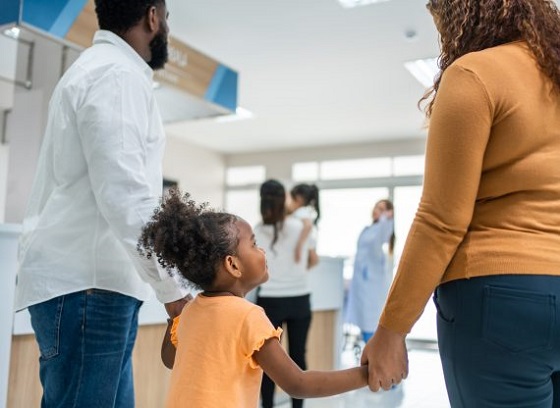
 Alberta1 day ago
Alberta1 day agoPharmacist-led clinics improve access to health care: Lessons from Alberta
-

 Alberta1 day ago
Alberta1 day ago30 million contraband cigarettes valued at $25 million dollars seized in Alberta
-

 Canadian Energy Centre1 day ago
Canadian Energy Centre1 day agoTrans Mountain completion shows victory of good faith Indigenous consultation
-
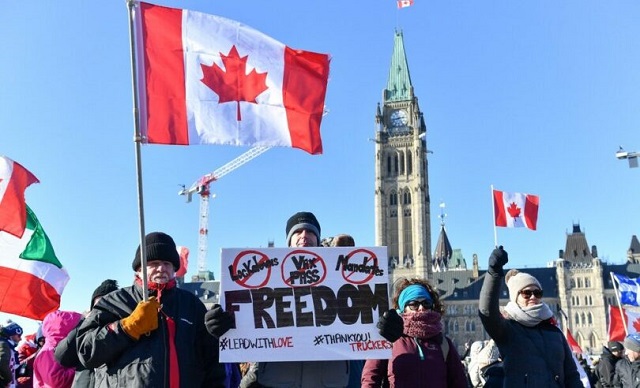
 COVID-192 days ago
COVID-192 days agoTrudeau government only sought legal advice after Emergencies Act was invoked, records indicate
-

 COVID-1924 hours ago
COVID-1924 hours agoHealthcare workers obtain partial win against Bonnie Henry in BC Supreme Court
-

 COVID-1923 hours ago
COVID-1923 hours agoElon Musk-backed doctor critical of COVID response vows appeal after court sides with medical board



